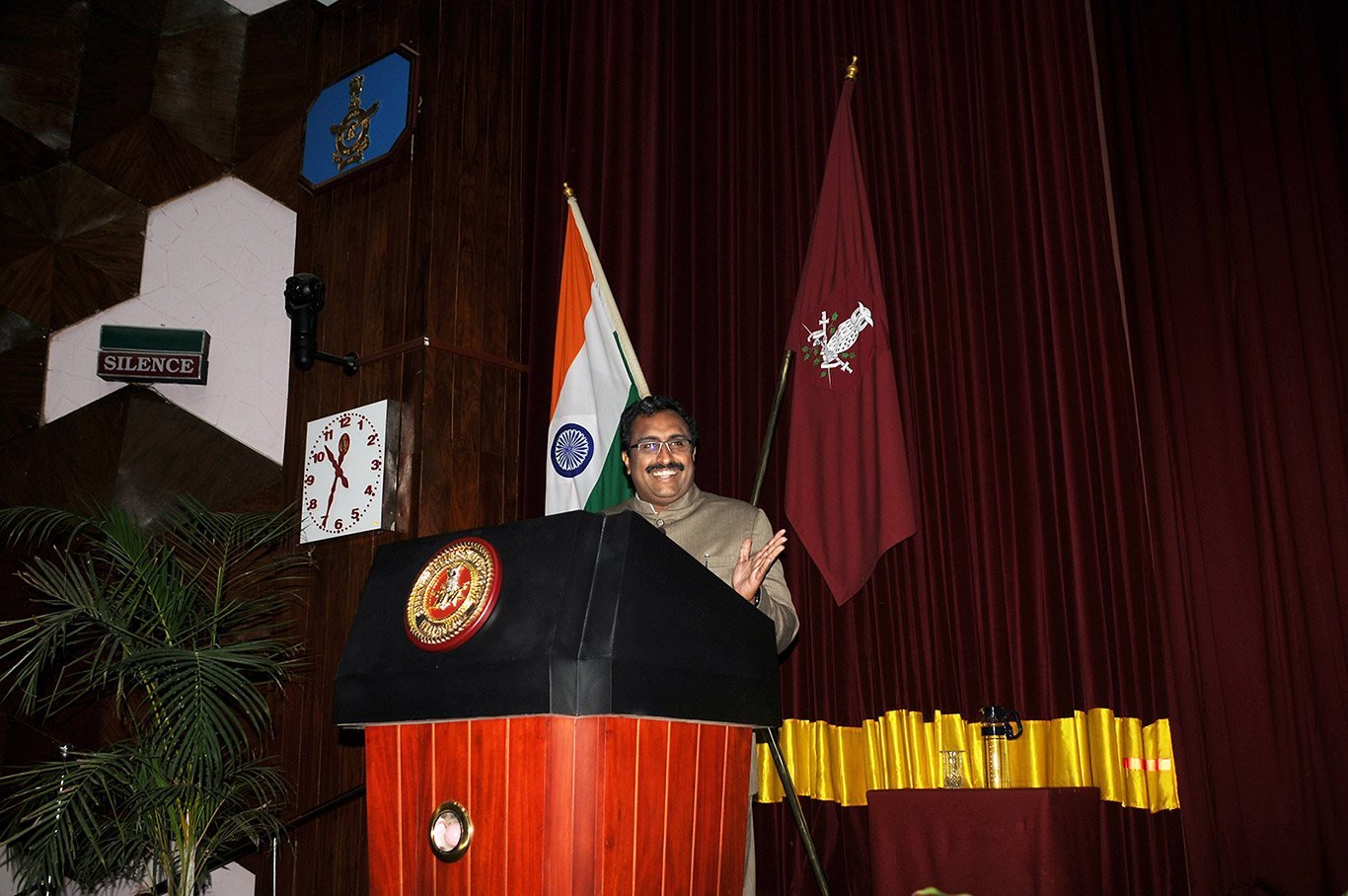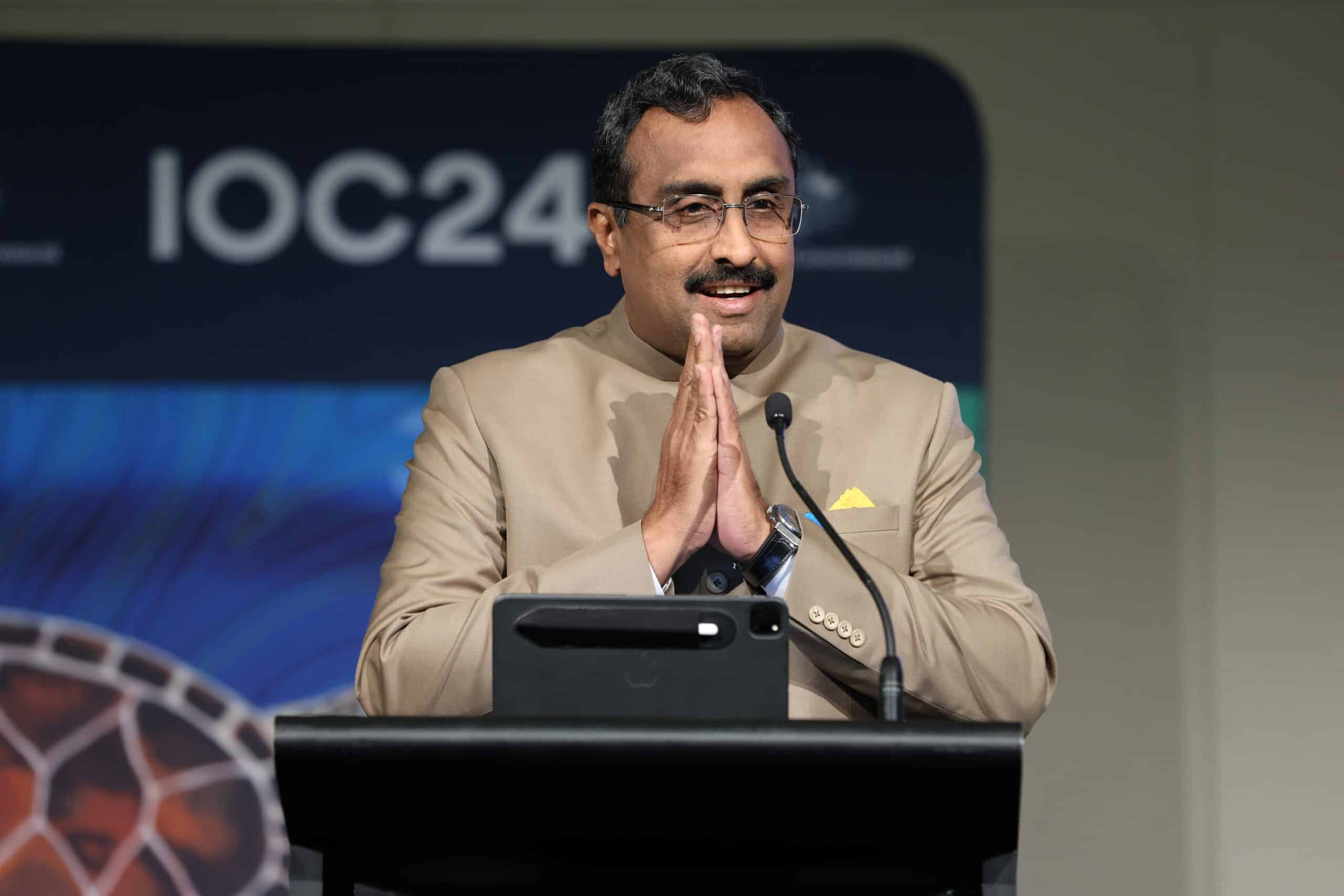
|
Getting your Trinity Audio player ready...
|
Following are the excerpts from Shri Ram Madhav’s speech delivered at the Defence Services Staff College in Wellington, Tamil Nadu on December 11, 2018
For any country, its National Security is primarily influenced by two main factors: geography and demography. Same is true with India also. We live in a very peculiar geography, and have a very diverse demography ranging from religious diversity to linguistic diversity, ethnic diversity, economic diversity and even ideological diversity. India, with such diverse demography and a difficult geography, has to build its own security narrative, and its own security establishment.
No government or policy maker can overlook these things, similarly, the NDA government too has identified four important political objectives for the government, these can be summed up as:
- Need to preserve national unity
- Need to achieve national prosperity, because security is not only in terms of military security but also the need to provide economic security, energy security and even climate security. Thus, prosperity to the people is one of the security objectives.
- Need to develop the physical security of the country, both internally and externally, a country should be able to handle security challenges in terms of its physical security
- Need to preserve National honour and National dignity
In India today, there is a need to develop a culture of strategy away from the ideas of romanticism. Countries cannot run on romantic ideas, they have to run on a very sound strategic thinking. It has to be the culture of nations. International Relations, which is integral to any country’s security is cold blooded, that is why it is said that, ‘there are no permanent friends or permanent foes in diplomacy, there are only permanent interests’. The interest is decided first and then the strategies are devised.
Secondly, we should realise the importance of setting long term objectives for the country. The culture of coming up with doctrines for every situation tells us about the absence of any one coherent national security doctrine which should have been made within the first ten years of independence. The philosophy of dealing with challenges and situations on an ‘as they come’ basis only talks of the ad-hocism prevalent in a country.
With the shift in the global power axis towards the Indo-Pacific Region, where the future lies for the next 50 years, it is time for India to realise its potential to undertake capacity building exercises from a longer term point of view. The economies of scale are here, the militaries are here. 70% of the container trade today passes through Indian Ocean. 60% of the energy traffic passes through the Indian Ocean. Fastest growing new economies, at least two of them are located in this region. This region is home to 45% of the world’s population, and the two big energy guzzlers, China and India.
This is where the global power, global competition for dominance is going to take place. For India to be a big power in the Indian Ocean Region, we need to have a strong navy, of course we have a strong army, and we are doing much more to strengthen it but what about our Navy. It is time we set new targets towards the east of our world, because at least in our lifetime, India’s future is to its east.
Having said that, it is also important for us to understand that the challenges of 21st century need 21st century solutions. One cannot tackle 21st century challenges with 20th century solutions. One has to be innovative and find new ways. In the 21st century, it is not parity that matters, it is the capability.
Our next learning should be around appreciating the difference between strategy and policy. While Sadhbhavana (goodwill) can be a strategy, it cannot be a policy. One should understand the difference between the two. Strategically, one might want to put in place a move. If today we decide that not a single civilian causality should happen, it’s a strategy in order to deny the terrorist the advantage of civilian causalities. But, that doesn’t mean we will show our weakness. We have to show the strength, the enemy should fear us.
However, to find effective solutions for complex situations, it is imperative to understand our neighbours before devising any strategy or policy. Strong ground posture paired with pro-active diplomacy yields results which requires greater understanding of a country, this is strategic thinking. Our immediate neighbourhood is our priority, if India is to remain secure, India should have best relations with its immediate neighbourhood.
The first people to understand this imperative for India’s national security were the Buddhist monks. It was them who travelled to the neighbourhood and created an outer shield of Buddhism for India. Buddhism became an outer-shield, and as long as that was strong, we could protect the country from greater invasions. And, as that shield became weaker, we suffered.
There was a strategic approach in that, there was a Tibet, then Myanmar, then Afghanistan all of which used to have Buddhist dominations, there is the Central Asian Republic where there is large scale Buddhism, even in Sri Lanka there was Buddhism. Thus, we are surrounded by a shield, we need to think about our neighbours as our immediate important security shield. We have to have a greater honourable engagement with them, sovereign equality should be the basis. This is what Prime Minister Modi has also said, “Together we grow”.
Another point that needs the attention of the security establishment is the need to realise the fact that the intelligence capability of a country is critical to its security future. We have to build a formidable intelligence operator within the country and outside. In fact, this is what Chanakya devised into two groups, one group is stationary, they are there, but they are also intelligence, one group is mobile, they are everywhere, they are also our people.
The problems that we face, especially with respect to our neighbours or other security challenges are here to stay for the next 50-100 years. Don’t think that with our wisdom we will find a permanent solution to it, it won’t work that way. Do you have that mind-set to fight for 50 years? If you have it you won’t look for romantic short-term solutions, you have to be steadfast. Be prepared for a 50 years insurgency, try to end it next year but be prepared for it for 50 years. That is how the security apparatus should think, try for a solution for tomorrow but be prepared for a war of 50 years. And, with that preparation, we have to prepare the country.



